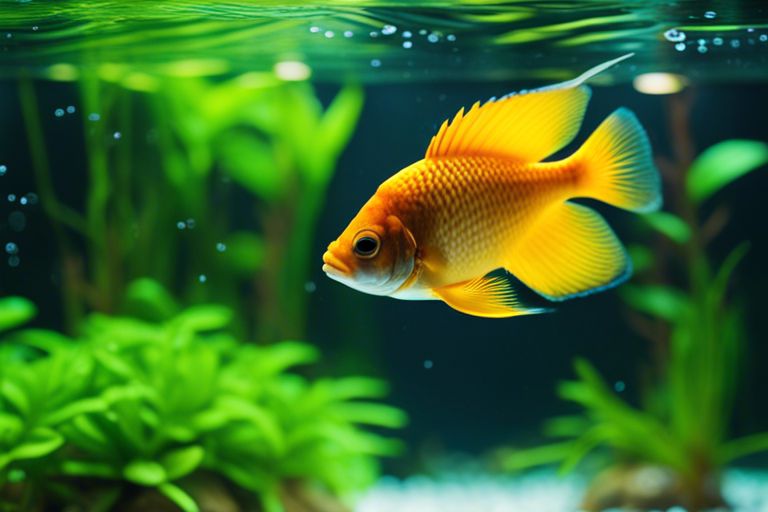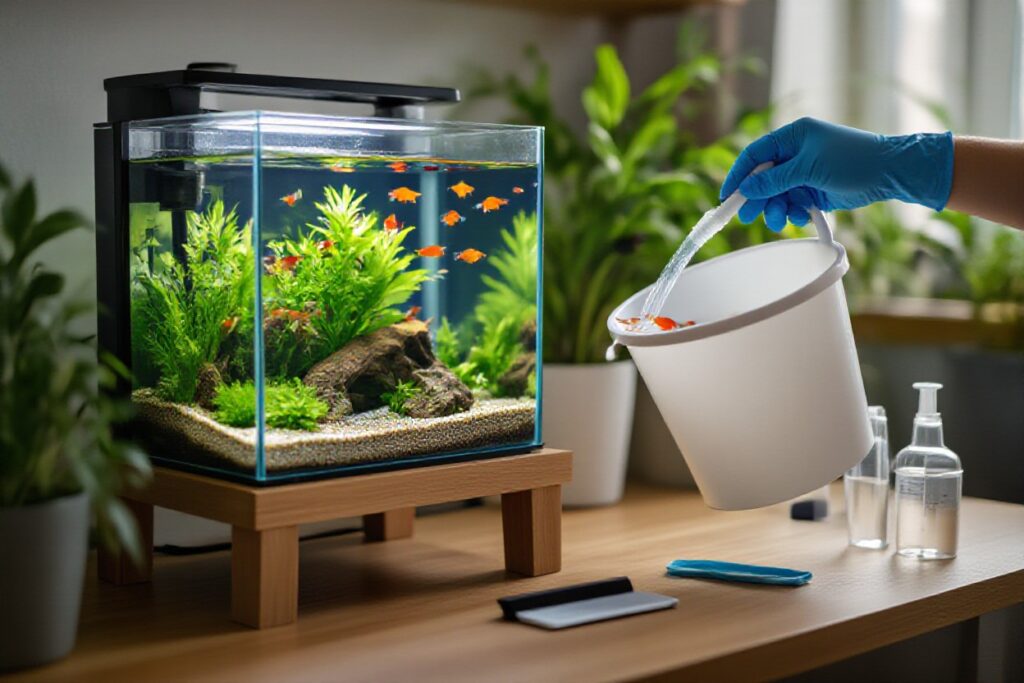Overseeing the well-being of your freshwater fish is important for their overall health and happiness. Just like any other pet, they require proper care and attention to thrive in their environment. In this blog post, we will discuss the importance of creating a wellness routine for your freshwater fish through effective tank maintenance tips. By following these guidelines, you can ensure that your fish are living in a clean and healthy environment that promotes their well-being.
Understanding Your Freshwater Aquarium
While setting up a freshwater aquarium may seem simple, it is important to understand the unique ecosystem within your tank to ensure the health and well-being of your aquatic pets. Maintaining a balanced environment is crucial for the thriving of your fish and other tank inhabitants.
The Ecosystem Within Your Tank
Any freshwater aquarium is a delicate ecosystem that relies on a combination of factors to stay in optimal condition. These factors include water quality, temperature, lighting, filtration, and the presence of live plants and beneficial bacteria. Understanding how these elements interact can help you maintain a stable and healthy environment for your fish.
Common Freshwater Fish Species and Their Needs
One of the most critical aspects of caring for freshwater fish is understanding the specific needs of the species you have in your tank. Different fish species have varying requirements when it comes to water parameters, diet, tank mates, and habitat. Researching and catering to these individual needs will ensure the well-being and longevity of your fish.
The ability to provide a suitable environment for your fish species starts with having a solid understanding of their natural habitat and behavior. By replicating these conditions as closely as possible in your aquarium, you can create a thriving ecosystem for your freshwater fish.
Key Elements of a Wellness Routine
Water Quality Management
Management of water quality is crucial for the well-being of your freshwater fish. Regular water testing and monitoring of parameters such as pH, ammonia, nitrite, and nitrate levels are vital. Performing routine water changes and ensuring proper filtration are key components of maintaining a healthy aquatic environment for your fish.
Balanced Nutrition for Fish
Any comprehensive wellness routine for freshwater fish must include a focus on providing balanced nutrition. High-quality fish food that meets the specific dietary needs of your fish species is vital. It is important to offer a variety of foods such as flakes, pellets, live or frozen foods to ensure a well-rounded diet.
For instance, herbivorous fish like plecos will benefit from sinking algae wafers, while carnivorous species like bettas thrive on protein-rich foods. Understanding the nutritional requirements of your fish will help you provide a diet that promotes overall health and vitality.
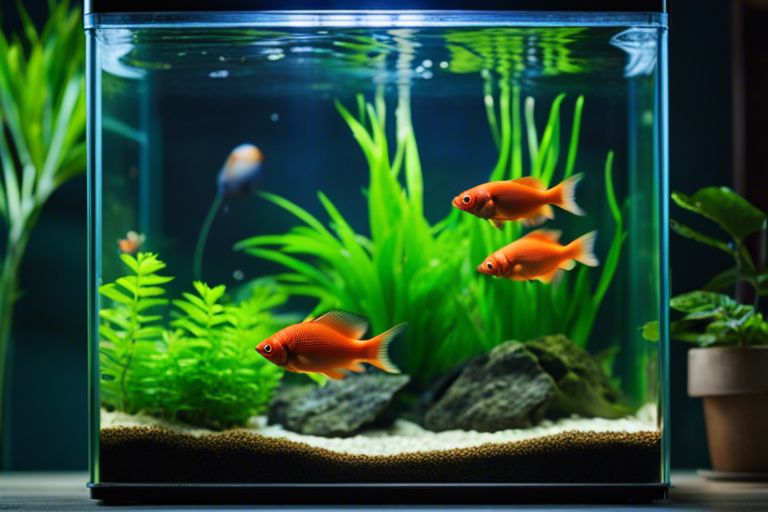
Routine Tank Maintenance Tips
- To ensure a healthy environment for your freshwater fish, it is crucial to establish a routine maintenance schedule for your aquarium. Regular tank maintenance not only keeps your fish happy and healthy but also helps maintain the overall balance of the ecosystem within the tank.
- This routine should include tasks such as cleaning, water changes, equipment checks, and maintaining water parameters to ensure optimal conditions for your fish to thrive.
Cleaning and Water Change Schedules
On a regular basis, typically once a week, clean the aquarium glass and decorations using a dedicated algae scrubber or sponge to remove any buildup. It is also important to perform partial water changes every one to two weeks, replacing about 10-25% of the water with fresh, conditioned water to remove toxins and replenish important minerals.
Equipment Check and Maintenance
Change filter media as recommended by the manufacturer to maintain efficient filtration and water quality. Check all equipment, such as heaters, air pumps, and lights, to ensure they are functioning properly. Regularly inspect hoses and connections for any signs of wear or leaks to prevent malfunctions that could harm your fish.
It is important to keep a close eye on the overall functionality of your equipment to address any issues promptly and prevent potential disasters in your aquarium.
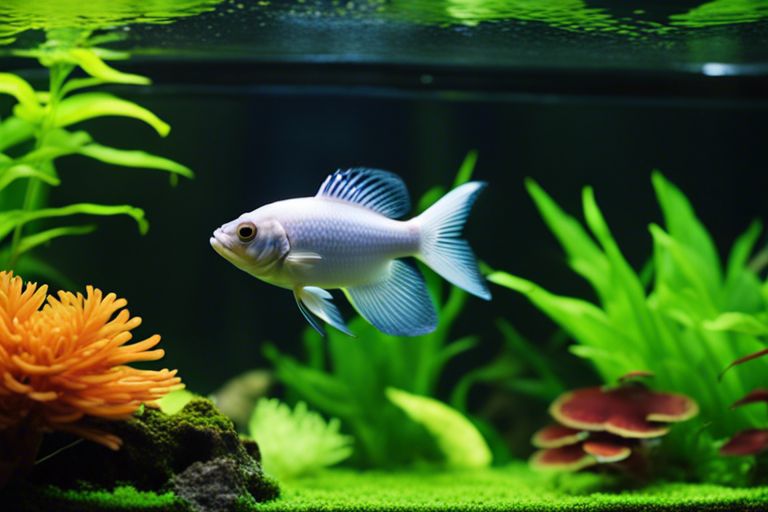
Monitoring Your Fish’s Health
Recognizing Signs of Stress and Illness
Noticing changes in your fish’s behavior or appearance is crucial in maintaining their health. With freshwater fish, signs of stress or illness can include lethargy, loss of appetite, abnormal swimming patterns, discoloration, fin rot, or unusual growths. It’s necessary to take prompt action if you observe any of these symptoms.
Preventive Measures and Treatments
Illness can spread quickly in a freshwater fish tank, so prevention is key. It is important to maintain good water quality by regular water changes, monitoring ammonia and nitrite levels, and ensuring proper filtration. It’s recommended to quarantine new fish before introducing them into the main tank to prevent the spread of diseases. If illness does occur, treatments like aquarium salt, medication, or isolation may be necessary. It’s best to consult a veterinarian specializing in fish health for accurate diagnosis and treatment plans.
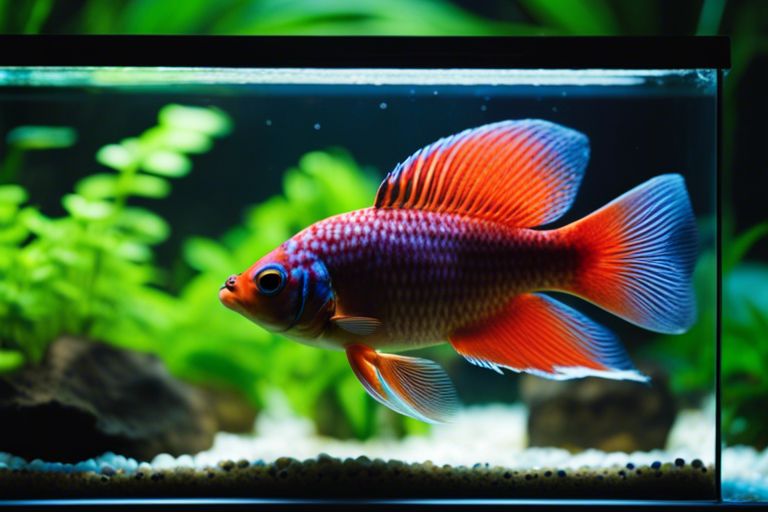
Advanced Tank Maintenance Practices
- Plant Care in Freshwater Aquaria
With proper plant care, your freshwater aquarium can thrive and provide a healthier environment for your fish. Consider using nutrient-rich substrates, adequate lighting, and supplementing with fertilizers to promote plant growth and oxygenation.
- Utilizing Technology for Monitoring Water Parameters
Freshwater aquarium technology has advanced significantly, allowing hobbyists to monitor water parameters with ease. Invest in a water quality monitor that detects pH, ammonia, nitrites, and nitrates. These devices can provide real-time data and alerts, helping you maintain optimal water conditions for your fish.
Utilizing Technology for Monitoring Water Parameters
The key to a successful freshwater aquarium is maintaining optimal water parameters for the health of your fish. Utilizing technology for monitoring water parameters can provide real-time data on crucial metrics like pH levels, ammonia, nitrites, and nitrates. By incorporating these tools into your maintenance routine, you can ensure a stable and healthy environment for your aquatic pets.
To wrap up
As a reminder, creating a wellness routine for your freshwater fish is crucial for their overall health and happiness. By following these tank maintenance tips, such as monitoring water quality, performing regular water changes, and cleaning the tank decor, you can provide a clean and safe environment for your aquatic pets. Remember to also pay attention to their behavior and adjust your routine as needed to ensure they thrive in their environment. By investing time and effort into maintaining your fish tank, you can enjoy a beautiful underwater ecosystem while providing the best care for your freshwater fish.
FAQ
Q: Why is creating a wellness routine important for freshwater fish?
A: Creating a wellness routine is vital for freshwater fish as it ensures their overall health and well-being. Regular maintenance helps to maintain water quality, prevent diseases, and provide a healthy environment for your fish.
Q: How often should I clean my freshwater fish tank?
A: It is recommended to clean your freshwater fish tank at least once a week. Regular water changes and tank maintenance help remove waste, uneaten food, and other debris that can harm your fish.
Q: What is the ideal water temperature for freshwater fish?
A: The ideal water temperature for most freshwater fish is between 75-80°F (24-27°C). It is important to maintain a stable water temperature to avoid stressing your fish and disrupting their metabolism.
Q: How can I test the water parameters in my freshwater fish tank?
A: You can test the water parameters in your freshwater fish tank using a water testing kit. This kit will measure parameters such as ammonia, nitrite, nitrate, pH, and water hardness, allowing you to ensure optimal water quality for your fish.
Q: What are some signs that indicate my freshwater fish are stressed?
A: Signs of stress in freshwater fish include loss of appetite, unusual swimming patterns, rapid gill movement, fin clamping, and changes in coloration. It is important to address any signs of stress promptly to prevent further health issues.
Q: How can I prevent common diseases in my freshwater fish?
A: To prevent common diseases in freshwater fish, maintain good water quality, avoid overfeeding, quarantine new fish before adding them to the tank, and provide a balanced diet. Regularly observing your fish for any signs of illness can also help detect and address issues early.
Q: Is it necessary to acclimate new fish to my freshwater tank?
A: Yes, it is important to acclimate new fish to your freshwater tank to prevent stress and ensure a smooth transition. Gradually introducing the new fish to the tank water helps them adjust to the temperature and water parameters, reducing the risk of shock and health complications.
